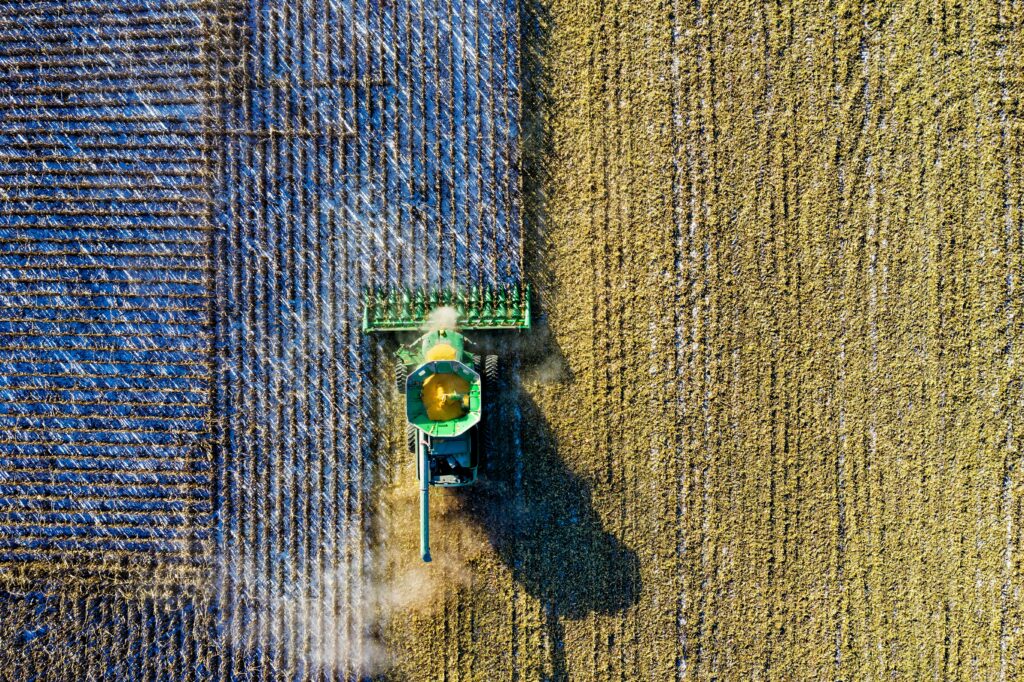PHYTOSANITARY CERTIFICATES
In the global trade of agricultural, food, plant, and machinery goods, ensuring that products are clean, safe, and compliant with international standards is key. This is where Phytosanitary Certificates come into play. If you’re exporting from Ireland, the UK, or France, these certificates are essential for compliant trade.
On this page we’ll explore what Phytosanitary Certificates are, their importance, how to obtain them and what plants and plant products require a phytosanitary certificate.
Table of Contents

What Are Phytosanitary Certificates?
A Phytosanitary Certificate is an official document issued by the Horticulture and Plant Health Division of the Department of Agriculture, Food and the Marine. It attests that consignments meet phytosanitary import requirements and applies to most plants, plant products, and other regulated articles traded internationally. These certificates facilitate international trade by providing an internationally agreed document and related procedures.
Phytosanitary Certificates may also be issued for certain processed plant products, such as wood or cotton, that have the potential to introduce regulated pests. Additionally, they may be required for other regulated articles like empty containers, vehicles, and organisms where phytosanitary measures are technically justified.
Importance of Phytosanitary Certificates for Export
Phytosanitary Certificates for export are indispensable for several reasons:
- Compliance with International Standards: These certificates ensure that your products meet the health and safety standards of the importing country, preventing the spread of harmful pests and diseases.
- Facilitating Smooth Trade: Having the necessary certification speeds up the customs clearance process, reducing delays and costs associated with non-compliance.
- Building Trust: Providing certified goods enhances your reputation and trustworthiness in the international market, fostering better trade relationships.
Phytosanitary Certificates Ireland
For exporters in Ireland, obtaining Phytosanitary Certificates is a straightforward process managed by the Department of Agriculture, Food and the Marine (DAFM). The department ensures that all necessary inspections are carried out and that the goods comply with both domestic and international regulations. Phytosanitary Certificates Ireland ensures that your products meet stringent safety standards, facilitating smooth export procedures.
Phytosanitary Certificates UK
The UK’s departure from the EU, commonly known as Brexit, has introduced new dynamics into the export process. Phytosanitary Certificates UK are now even more critical as they ensure compliance with both EU and non-EU countries’ regulations. The Animal and Plant Health Agency (APHA) in the UK oversees the issuance of these certificates, ensuring that UK exports remain competitive and compliant on the global stage.
Phytosanitary Certificates France
France, being a major exporter of agricultural goods within the EU, places significant emphasis on phytosanitary measures. Phytosanitary Certificates France are issued by the Ministry of Agriculture and Food, ensuring that French exports meet the rigorous standards required by importing countries. This ensures the protection of France’s rich agricultural heritage and its trading partners’ ecosystems.
Impact of Brexit on Phytosanitary Certificates
Brexit has brought significant changes to the export landscape. From January 1, 2021, every import from Great Britain is subject to the same phytosanitary import prohibitions and requirements as other non-EU European countries. However, for Northern Ireland, the existing internal EU requirements remain applicable. Phytosanitary Certificates Brexit have become crucial for UK exporters to ensure compliance with the EU’s phytosanitary standards, helping maintain the flow of goods across borders despite the political and regulatory changes.
How to Obtain a Phytosanitary Certificate
The process of obtaining a Phytosanitary Certificate involves several steps:
At Customs Complete, we specialise in advising companies on Phytosanitary Certificates for Ireland, France, and the UK. We can guide you through the application process, explain inspection requirements, and ensure you understand the necessary steps to obtain certification efficiently.
- Application: Submit an application to the relevant NPPO in your country.
- Inspection: Arrange for an inspection of your goods to ensure they are free from pests and diseases.
- Certification: Once the inspection is successful, the NPPO will issue the Phytosanitary Certificate.
- Compliance: Ensure that your goods are shipped with the certificate to facilitate customs clearance.
Plants and Plant Products Requiring a Phytosanitary Certificate
All consignments of plants and plant products entering the European Union require a Phytosanitary Certificate. This includes living plants and their parts such as:
- Plants for Planting: This includes live plants intended for propagation or planting purposes, such as nursery stock, seedlings, bulbs, and rooted cuttings.
- Fruits and Vegetables: Fresh fruits and vegetables, whether whole or cut, including but not limited to apples, oranges, tomatoes, potatoes, carrots, and lettuce.
- Cut Flowers and Foliage: Freshly cut flowers and foliage used for ornamental purposes, such as roses, lilies, carnations, and ferns.
- Seeds: Seeds of various plants, including agricultural crops, flowers, and trees, intended for planting or processing.
- Grain: Grain commodities like wheat, corn, rice, barley, and oats, whether for planting or consumption.
- Bulbs: Bulbous plants, including tulips, daffodils, hyacinths, and gladioli, intended for propagation or cultivation.
- Potatoes: Both seed potatoes for planting and ware potatoes for consumption may require phytosanitary certification, depending on destination regulations.
- Used Farm and Forestry Machinery or Vehicles: Machinery or vehicles used in agricultural or forestry operations, including tractors, harvesters, and trucks, which may carry soil or plant residues.
- Wood and Wood Products: Wooden materials such as logs, lumber, timber, and wood packaging materials (pallets, crates) may require phytosanitary certification to prevent the spread of pests and diseases.
- Plant Products: Processed plant materials, such as dried herbs, spices, and teas, as well as manufactured products like wooden furniture, paper, and pulp derived from plants.
- Composite Products: Products composed of plant materials along with other components, such as nut and seed butters containing processed fruits or vegetables.
- Soil and Growing Medium: Soil or growing medium containing organic substances, excluding those made entirely of peat or coconut fiber.
There are exceptions under Regulation 2019/2072, including bananas, dates, coconut, pineapples, and durians, which do not require a certificate
High-Risk Plants and Import Prohibitions
Certain high-risk plants are prohibited from entering the EU pending a risk assessment due to their potential to host destructive pests. Examples include Acer (maple), Quercus (oak), and Fraxinus (ash). These plants are known to harbour pests without showing signs of infection, reducing the possibility of detecting them during inspections.
In the complex world of international trade, Phytosanitary Certificates ensure the safety and compliance of agricultural, food, plant, and machinery goods. If you’re operating in Ireland, the UK, or France, these certificates are essential for protecting ecosystems and facilitating trade.
At Customs Complete, we offer thorough guidance on Phytosanitary Certificates in Ireland, France, and the UK. We help ensure your goods meet the necessary requirements, remain clean and safe, and comply with international standards.
